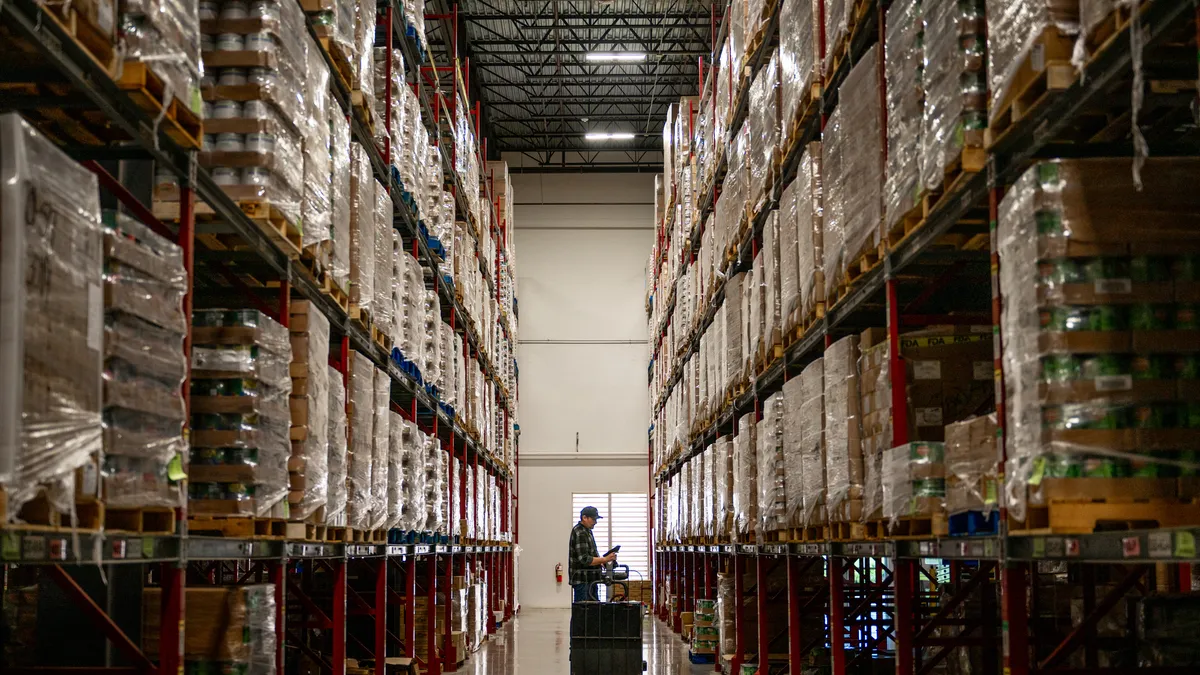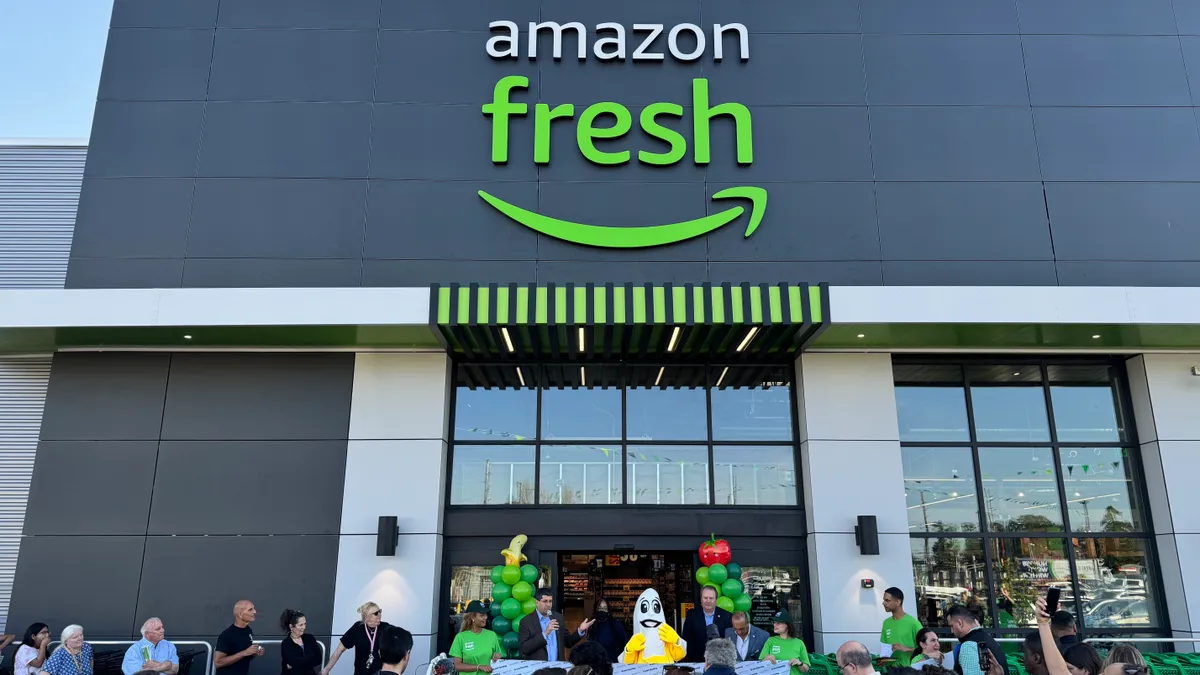An employee’s ability to show up for work goes far beyond walking in the front door. And employers are starting not only to recognize that but act on it.
In the healthcare world, physicians have long advocated for addressing what are known as the social determinants of health: the impact of elements like safe housing, reliable transportation, healthy food, clean water and air, and freedom from racism and discrimination on a person’s health and well-being.
In recent years, some employers are adopting a similar mindset when it comes to workers. They are evaluating the social determinants of work: the factors that affect how an employee can show up in a healthy way at work.
Find the social and financial ROI
“Employers have both a financial ROI and a social ROI in helping employees overcome social determinants of work. It’s not just the right thing to do; it can also make an impact [on] their bottom line,” Aflac CHRO Jeri Hawthorne told HR Dive.
The 2023-2024 Aflac WorkForces Report found that 66% of employees are less likely to look for a new job if they feel like their company cares about their well-being. Aflac focuses on five dimensions of employee wellness: physical, emotional, financial, spiritual and social, Hawthorne said.
In practice, that includes on-site care centers for preventive care, as well as access to primary care physicians virtually; therapy benefits for employees and dependents; flexible spending accounts and a tax-deferred savings option, including a 401(k) contribution; nondenominational corporate chaplains for weddings, last rights and funerals; volunteer opportunities; scholarships for employees and dependents; career development; and car seats for new parents, among other things.
“When it comes to thinking about social determinants of work for Aflac employees, we try to consider the employee as a whole person. We think about our offerings, services and support in light of more aspects of who they are than when they log into their computer,” Hawthorne said.
Listen to employees
At Northwell Health, a New York-based healthcare system, making sure employees can show up completely ties directly into patient care, said Gregg Nevola, vice president and chief of total well-being.
“In healthcare, it’s very important for us to make sure that our team members are engaged, and they’re providing care for our community and for our patients,” Nevola said.
Programs that help reduce stress or provide relief for something affecting employees can lead to a better experience for patients because workers will be more engaged in their work, Nevola said.
“That improves health outcomes. That really drives the mission of the health system,” he said.
But the key to effectively engaging employees is talking to them, Nevola said. Too often, employers find a program and decide to try it without first checking in with employees to see if it’s something that would actually be helpful, he said.
For example, Northwell Health has an on-site employee assistance program but was seeing workers come in facing serious issues like domestic violance and suicidal thoughts. Instead of launching another EAP, the system hired a social worker to help connect employees with resources to bring them safety and stability, Nevola said.
“What we really have to do is become knowledgeable about what’s available out there and be creative in how we make those connections,” Nevola said.
In another instance, members of Northwell’s caregiver employee resource group shared concerns about finding resources to help them care for aging parents. The system gathered together information on internal resources, such as home health and physiotherapy services, and then formed a partnership with eFamilyCare, a virtual family caregiving app that connects caregivers to care advisers.
“The most important thing is how we can really impact one of our employee’s lives by thinking about certain things a little bit differently and challenging ourselves as an employer on how we could do better,” Nevola said.
Make a community effort
United Way of Greater Cleveland seized upon the idea of social determinants of work and is creating a toolkit for employers in the community to use to address employee needs, said Renée Timberlake, director of economic mobility at United Way of Greater Cleveland.
The organization urges companies to survey workers to find out what barriers to work they’re facing, then calculate how much money the company is losing by not being able to fill open positions. Using that information, companies can decide how much money they’re willing to invest in addressing those barriers and tackle solutions ranging from cheaper and easier to more expensive and more difficult, Timberlake said.
The cost to hire a new worker can be three to four times that person’s salary, according to SHRM Foundation Chair Edie Goldberg.
“This is the right time to do this. The need for workers is so great,” Timberlake said.
One program, called Bridges@Work, assists employees at United Way partner companies in Geauga County, Ohio, in coping with challenges that affect their work productivity. In the past year, the program’s resource coordinator helped 855 workers with financial emergencies, child care, housing, transportation and elder care concerns, and another 146 workers were given $1,000 emergency loans to cover unexpected expenses. The program is offered at no cost to the employee and relies on collaboration with local charities and growth organizations.
It’s important for employers not to make assumptions about what employees need, Timberlake said. “You need to understand what solutions actually work for the employee,” she said. “People know what they need.”
Take direct steps
“With COVID-19, we’ve thrown a lot of resources, solutions and well-being ideas out there with good intentions, but the engagement rate, the uptake utilization, hasn’t been as expected,” said Alight Chief Medical Officer Dr. Bipin Mistry, who has a background in internal medicine. “So we really start to think, ‘How can we do this in a better way, a more meaningful way?’”
A new partnership launched in September between Alight, a cloud-based human capital services provider, and Socially Determined, a social risks analytics firm, is designed to help employers identify social determinants of health risks facing employees and connect those employees to available resources.
For many CHROs, deciding what strategy to adopt to address needs can feel “broad and daunting,” Mistry said. But in identifying what community resources exist, employers can then focus on what gaps they need to fill, he said.
To help the most vulnerable employees better access healthcare, companies can, for example, reduce copays or the amount that must be contributed to a health plan for lower-wage workers, Mistry said.
“If people are invested in the employees’ health and well-being and financial well-being, it does drive more productive workers and less time off work. It’s a win for the employer,” Mistry said.
In some cases, employers create food banks at large distribution sites or manufacturing facilities to provide workers with access to healthy food, said Dr. Trenor Williams, CEO and co-founder of Socially Determined. Or they’ll provide food delivery options or literacy programs to help address nutrition-related diseases like diabetes, he said.
“I think if we in the healthcare world, if we tried to do this without employers participating, one, I don't think it would be as successful; two, I don't think we could have the impact. We miss the opportunity to be able to integrate and partner with one of the largest sectors across the United States,” said Williams, who has a background in family medicine.
Find partners
With his company Sharebite, CEO and Co-Founder Dilip Rao wants to address food insecurity. With every meal purchased through its corporate meal benefits program, Sharebite makes a donation to organizations addressing childhood hunger.
“We started this company to really explore how we can leverage the private sector. It's really about [aligning] the incentives for the private sector to undertake the burden of social good and public good,” Rao said.
Through Sharebite, companies purchase meals or meal vouchers for employees, who then can have food delivered to their office or home from local restaurants.
“The average worker working at your company is either just getting by or might be food-insecure and not tell you about it. We’ve set out to change that,” Rao said.
Rao launched the business to address a need he experienced firsthand. While working in the financial sector in investment banking early in his career, for two years he was only able to make ends meet by working late every night. In doing so, the company gave him a $20 meal allowance, which he used to order dinner and then save half to eat the next day. In all ways, he “looked the part and spoke the part” but was silently struggling, he said.
The Urban Institute estimates that 1 in 5 adults experienced household food insecurity in summer 2022, driven by food inflation and higher costs for other basic necessities.
“I look back and, if people who are relatively well-paid and are quite successful today remember going through something like that, what about the average American worker?” Rao said.





















